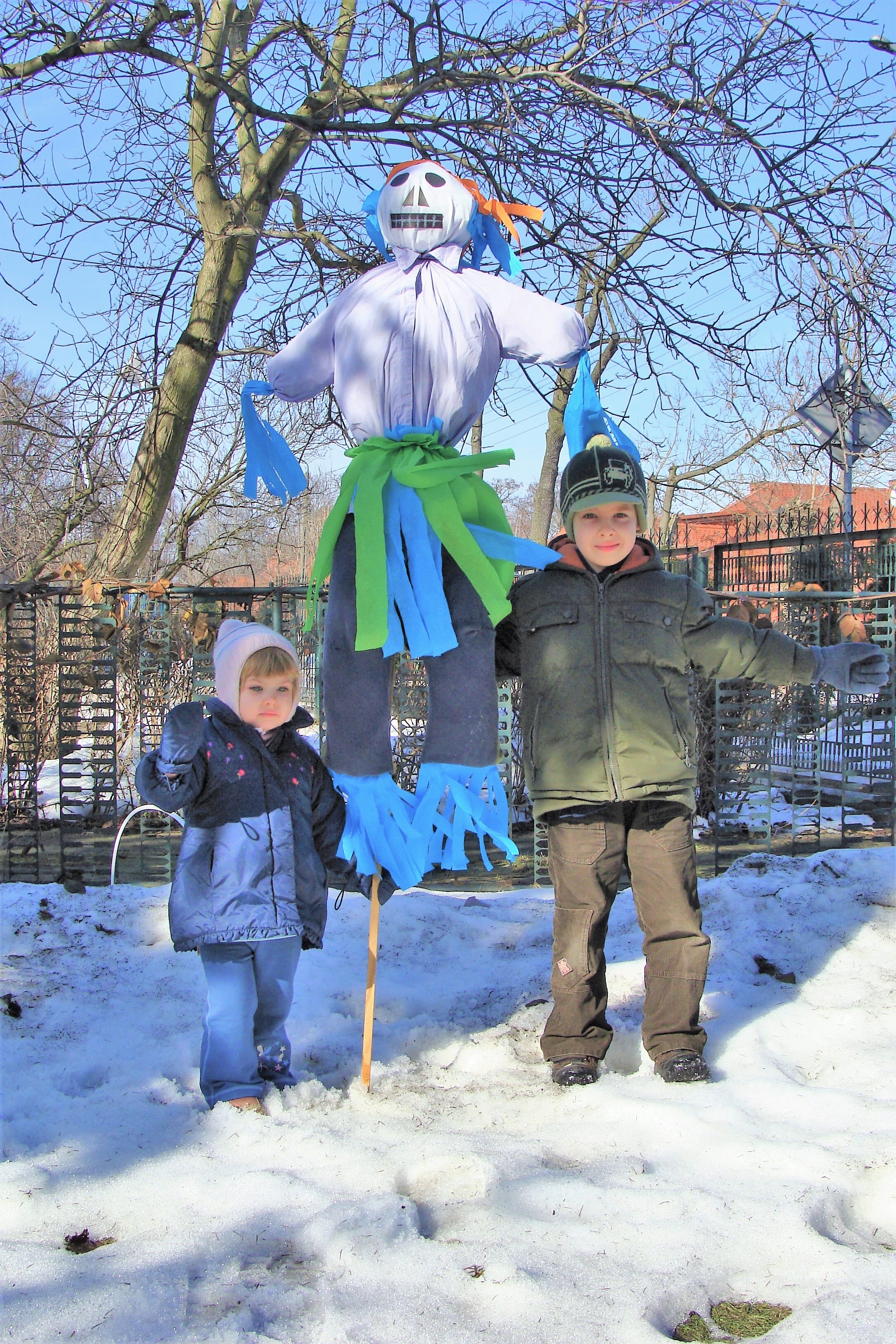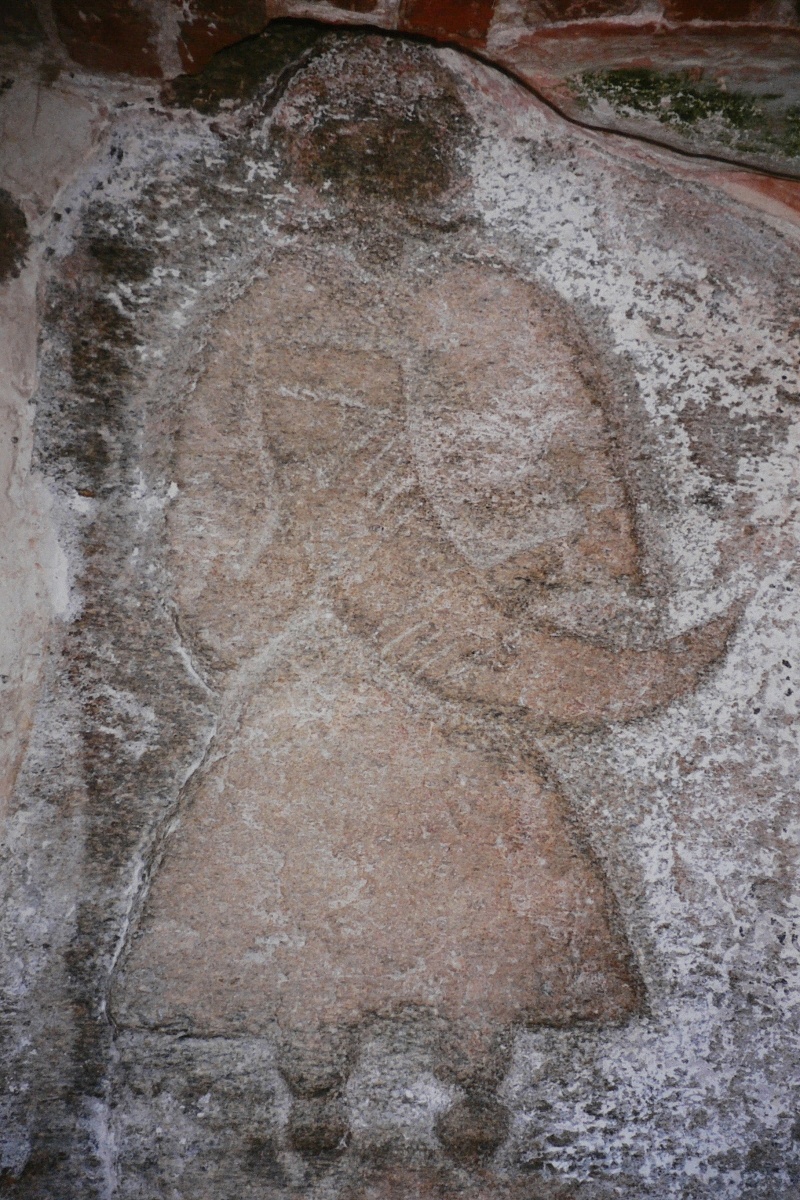|
Moryana
Moryana (russian: Моря́на, ) is a female sea spirit in Slavic folklore, possibly a goddess. Moryana was a sea vodyanitsa and daughter of the Morskoy Tsar, and also, according to some beliefs, she ruled the winds. Sometimes the ''moryany/moryanki'' (plural; russian: моряны, морянки; Polish: moriany) were said to be numerous spirits of the sea and a marine kind of rusalki, which posed a great threat to ships, but usually Moryana was represented as a single entity. Due to the consonance of her name with the name of the goddess Marena, Moryana was sometimes identified with her and was called the goddess of death. Etymology Moryana's name is derived from ''море'' meaning "sea", and with the feminine ending ''яна'' it is roughly translated as "she of the sea". Moryana's name is used in some regions of Russia to describe the cold and harsh winds she personifies; these winds blow from the sea to the land and are also called ''морянка'', ''морянн ... [...More Info...] [...Related Items...] OR: [Wikipedia] [Google] [Baidu] |
Rusalka
In Slavic folklore, the rusalka (plural: rusalky/rusalki; ; pl, rusałka}) is a typically feminine entity, often malicious toward mankind and frequently associated with water, with counterparts in other parts of Europe, such as the French Melusine and the Germanic Nixie (water spirit), Nixie. Folklorists have proposed a variety of origins for the entity, including that they may originally stem from Slavic paganism, where they may have been seen as benevolent spirits. Rusalki appear in a variety of media in modern popular culture, particularly in Slavic language-speaking countries, where they frequently resemble the concept of the mermaid. In northern Russia, the rusalka was also known by various names such as the Vodyanoy #Vodyanitsa, vodyanitsa (or vodyaniha/vodyantikha; russian: водяни́ца, водяни́ха, водянти́ха ; Literal meaning, lit. "she from the water" or "the water maiden"), kupalka (russian: купа́лка; "bather"), shutovka (russian: шу� ... [...More Info...] [...Related Items...] OR: [Wikipedia] [Google] [Baidu] |
Morana (goddess)
Marzanna (in Polish), Morė (in Lithuanian), Marena (in Russian), Mara (in Ukrainian), Morana (in Czech, Slovene and Serbo-Croatian), Morena (in Slovak and Macedonian) or Mora (in Bulgarian) is a pagan Slavic goddess associated with seasonal rites based on the idea of death and rebirth of nature. She is an ancient goddess associated with winter's death, rebirth and dreams. In ancient Slavic rites, the death of the Goddess Marzanna at the end of winter becomes the rebirth of Spring of the Goddess Kostroma (Russian), Lada or Vesna representing the coming of Spring. Some medieval Christian sources such as the Czech 13th century Mater Verborum compare her to the Greek goddess Hecate, associating her with sorcery. 15th century Polish chronicler Jan Długosz likened her in his ''Annales'' to Ceres, the Roman goddess of agriculture (together with another Slavic goddess Dziewanna). Lithuanian, Latvian and some Estonian sources, dated between the 13th and 14th century, note the worsh ... [...More Info...] [...Related Items...] OR: [Wikipedia] [Google] [Baidu] |
Slavic Folklore
Slavic folklore encompasses the folklore of the Slavic peoples from their earliest records until today. Folklorists have published a variety of works focused specifically on the topic over the years.See, for example, Kononenko 2007. See also * Vladimir Propp, Russian folklorist who specialized in morphology * Supernatural beings in Slavic religion * Deities of Slavic religion Notes References *Kononenko, Natalie O. 2007. ''Slavic Folklore: A Handbook''. Greenwood Press Greenwood Publishing Group, Inc. (GPG), also known as ABC-Clio/Greenwood (stylized ABC-CLIO/Greenwood), is an educational and academic publisher (middle school through university level) which is today part of ABC-Clio. Established in 1967 as Gr .... Slavic Folk Tales(en) {{Folklore-stub ... [...More Info...] [...Related Items...] OR: [Wikipedia] [Google] [Baidu] |
Ognyena Maria
{{More citations needed, date=November 2022 In Slavic mythology, Ognyena Maria (literally "Fiery Mary") is a fire goddess who is the sister and assistant of the thunder god, Perun. Ognyena Maria originates as a conflation of the figures of Margaret the Virgin and the Virgin Mary, both regarded as sisters of Saint Elias. This divinity also appears with southern Slavs, and is usually considered to be the sister of the thunder god/saint.Petrovitch, Woislav M.; Karadzhic, Vuk Stefanovic. Hero tales and legends of the Serbians'. New York: Frederick A. Stokes company. 915p. 15. She was also associated with rain or the sea, or with Lazarus (Марина Лазоревая) and azure flashes of lightning. Ognyena Maria’s feast in the folk calendar of the Slavs is on July 17, on the Julian calendar (around 30 July). Belarus In Belarus, she is prayed towards for healing from ailments: "Добры вечар, цёмна ноч! На табе, вада, маю бяду, а мне маё ... [...More Info...] [...Related Items...] OR: [Wikipedia] [Google] [Baidu] |
Slavic Legendary Creatures
Slavic, Slav or Slavonic may refer to: Peoples * Slavic peoples, an ethno-linguistic group living in Europe and Asia ** East Slavic peoples, eastern group of Slavic peoples ** South Slavic peoples, southern group of Slavic peoples ** West Slavic peoples, western group of Slavic peoples ** Slavic Americans, Americans of Slavic descent * Anti-Slavic sentiment, negative attitude towards Slavic peoples * Pan-Slavic movement, movement in favor of Slavic cooperation and unity * Slavic studies, a multidisciplinary field of studies focused on history and culture of Slavic peoples Languages, alphabets, and names * Slavic languages, a group of closely related Indo-European languages ** Proto-Slavic language, reconstructed proto-language of all Slavic languages ** Old Church Slavonic, 9th century Slavic literary language, used for the purpose of evangelizing the Slavic peoples ** Church Slavonic, a written and spoken variant of Old Church Slavonic, standardized and widely adopted by S ... [...More Info...] [...Related Items...] OR: [Wikipedia] [Google] [Baidu] |
Slavic Folklore Characters
Slavic, Slav or Slavonic may refer to: Peoples * Slavic peoples, an ethno-linguistic group living in Europe and Asia ** East Slavic peoples, eastern group of Slavic peoples ** South Slavic peoples, southern group of Slavic peoples ** West Slavic peoples, western group of Slavic peoples ** Slavic Americans, Americans of Slavic descent * Anti-Slavic sentiment, negative attitude towards Slavic peoples * Pan-Slavic movement, movement in favor of Slavic cooperation and unity * Slavic studies, a multidisciplinary field of studies focused on history and culture of Slavic peoples Languages, alphabets, and names * Slavic languages, a group of closely related Indo-European languages ** Proto-Slavic language, reconstructed proto-language of all Slavic languages ** Old Church Slavonic, 9th century Slavic literary language, used for the purpose of evangelizing the Slavic peoples ** Church Slavonic, a written and spoken variant of Old Church Slavonic, standardized and widely adopted by S ... [...More Info...] [...Related Items...] OR: [Wikipedia] [Google] [Baidu] |
Slavic Folklore
Slavic folklore encompasses the folklore of the Slavic peoples from their earliest records until today. Folklorists have published a variety of works focused specifically on the topic over the years.See, for example, Kononenko 2007. See also * Vladimir Propp, Russian folklorist who specialized in morphology * Supernatural beings in Slavic religion * Deities of Slavic religion Notes References *Kononenko, Natalie O. 2007. ''Slavic Folklore: A Handbook''. Greenwood Press Greenwood Publishing Group, Inc. (GPG), also known as ABC-Clio/Greenwood (stylized ABC-CLIO/Greenwood), is an educational and academic publisher (middle school through university level) which is today part of ABC-Clio. Established in 1967 as Gr .... {{Folklore-stub ... [...More Info...] [...Related Items...] OR: [Wikipedia] [Google] [Baidu] |
Slavic Mythology
Slavic mythology or Slavic religion is the religious beliefs, myths, and ritual practices of the Slavs before Christianisation, which occurred at various stages between the 8th and the 13th century. The South Slavs, who likely settled in the Balkan Peninsula during the 6th–7th centuries AD, bordering with the Byzantine Empire to the south, came under the sphere of influence of Eastern Christianity, beginning with the creation of writing systems for Slavic languages (first Glagolitic, and then Cyrillic script) in 855 by the brothers Saints Cyril and Methodius and the adoption of Christianity in Bulgaria in 863. The East Slavs followed with the official adoption in 988 by Vladimir the Great of Kievan Rus'. The West Slavs' process of Christianization was more gradual and complicated. The Moravians accepted Christianity as early as 831, the Bohemian dukes followed in 845, Slovaks accepted Christianity somewhere between the years 828 and 863, but the Poles accepted it much late ... [...More Info...] [...Related Items...] OR: [Wikipedia] [Google] [Baidu] |
Russian Folklore Characters
Russian(s) refers to anything related to Russia, including: *Russians (, ''russkiye''), an ethnic group of the East Slavic peoples, primarily living in Russia and neighboring countries * Rossiyane (), Russian language term for all citizens and people of Russia, regardless of ethnicity * Russophone, Russian-speaking person (, ''russkogovoryashchy'', ''russkoyazychny'') *Russian language, the most widely spoken of the Slavic languages *Russian alphabet *Russian cuisine * Russian culture * Russian studies Russian may also refer to: *Russian dressing *''The Russians'', a book by Hedrick Smith * Russian (comics), fictional Marvel Comics supervillain from ''The Punisher'' series *Russian (solitaire), a card game * "Russians" (song), from the album ''The Dream of the Blue Turtles'' by Sting *"Russian", from the album '' Tubular Bells 2003'' by Mike Oldfield *"Russian", from the album '' '' by Caravan Palace *Nik Russian, the perpetrator of a con committed in 2002 *The South African name ... [...More Info...] [...Related Items...] OR: [Wikipedia] [Google] [Baidu] |


